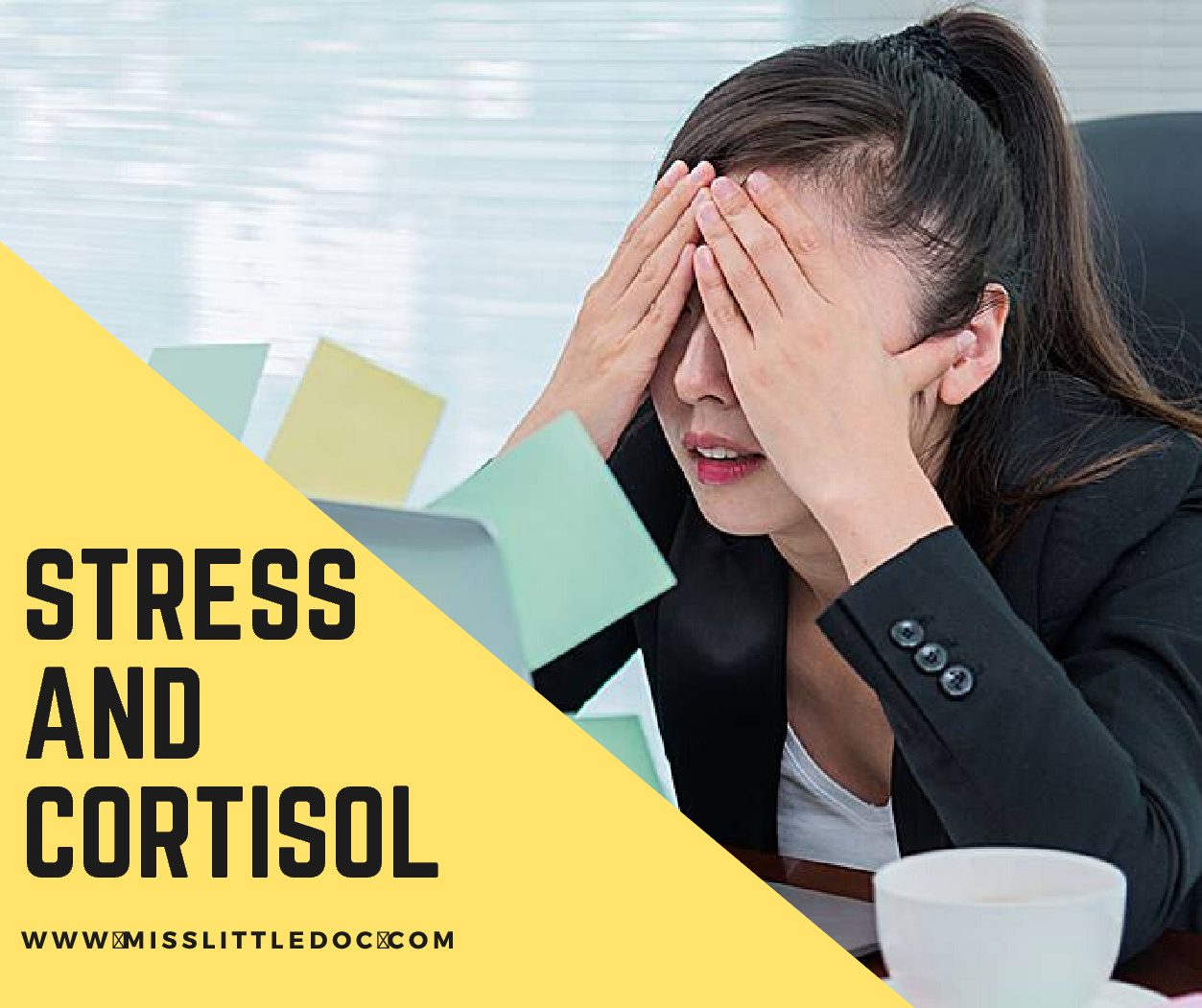Stress and Cortisol Levels
Cortisol is made in the adrenal glands and is a steroid hormone. Almost every cell in your body contain receptors for cortisol. Many people are familiar with Hydrocortisone. You probably have some in your drawer at home to help reduce swelling, itching, and redness that can occur with insect bites, poison oak/ivy, eczema, dermatitis, allergies, and/or a rash.
Cortisol is in charge of controlling the body’s blood sugar levels (which regulates your metabolism), it acts as an anti-inflammatory, influencing memory formation, controlling salt and water balance, influencing blood pressure and helping development of the fetus.

It is known as the “stress” hormone due to the increased output of cortisol during stressful “events” or stages of life. According to the CDC 70% of physician visits is directly related to stress. If you watch the news or haven’t been living under a rock, you are most likely stressed more than usual!
Too Much Cortisol
When you have chronic stress, cortisol levels are increased. To combat the increase in cortisol, your body starts depleting progesterone. When you have depleted progesterone you become estrogen dominant.
Too much cortisol over a prolonged period of time can lead to a condition called Cushing’s syndrome. This can be caused by a wide range of factors, such as a tumor that produces too much cortisol or taking too many steroids (Prednisone) or other drugs. The symptoms for Cushing’s syndrome include:
- rapid weight gain mainly in the face, chest and abdomen
- a flushed and round face
- increased thirst and frequent urination
- acne or other skin changes (bruises and purple stretch marks)
- high blood pressure
- osteoporosis
- muscle weakness
- decreased sex drive
- mood swings, which show as anxiety, depression or irritability
High cortisol levels over a prolonged time can also cause lack of sex drive and, in women, periods can become irregular, less frequent or stop altogether.
Cortisol can also cause several other things:
- high blood pressure
- type 2 diabetes
- fatigue
- impaired brain function
- infections
How to Decrease Cortisol
- Lower stress
- Eat a good diet
- Get enough sleep
- Exercise
- Avoid caffeine at night
- Take fish oil or ashwagandha
- Get adjusted!
Chiropractic looks at the whole body and what is going on in your life as far as chemicals that could be causing stressors. Stress can be mechanical stress (pain, working out, bone break, sprains..), emotional stress (everyday stresses, depression, anxiety…), food stress (gluten, food sensitivity, chemicals on our food…). If you have any questions on what you should look for give us or a chiropractor near you a call.
Stressors in life cause subluxations. Subluxations cause pain and dysfunction in the body. Chiropractic adjustments can help you work on creating a better environment for your body and your house. Invest in your health and care about what you put into/onto your body while you are young. You will save thousands of dollars and have less pain later in life.
~Dr. Lacey~
Carder Chiropractic Clinic, INC.
El Reno, OK 73036
Comments are closed.




jo
June 24, 2020 at 11:56 amThank you for the information. I am going to visit a local chiropractic and will follow your blogs.
Samantha Jackson
June 27, 2020 at 9:46 pmHi! I¡¯m a Japanese Girl living in Baltimore, I found your article to be soooo Usefull!
ปั้มไลค์
July 8, 2020 at 1:08 pmLike!! Really appreciate you sharing this blog post.Really thank you! Keep writing.